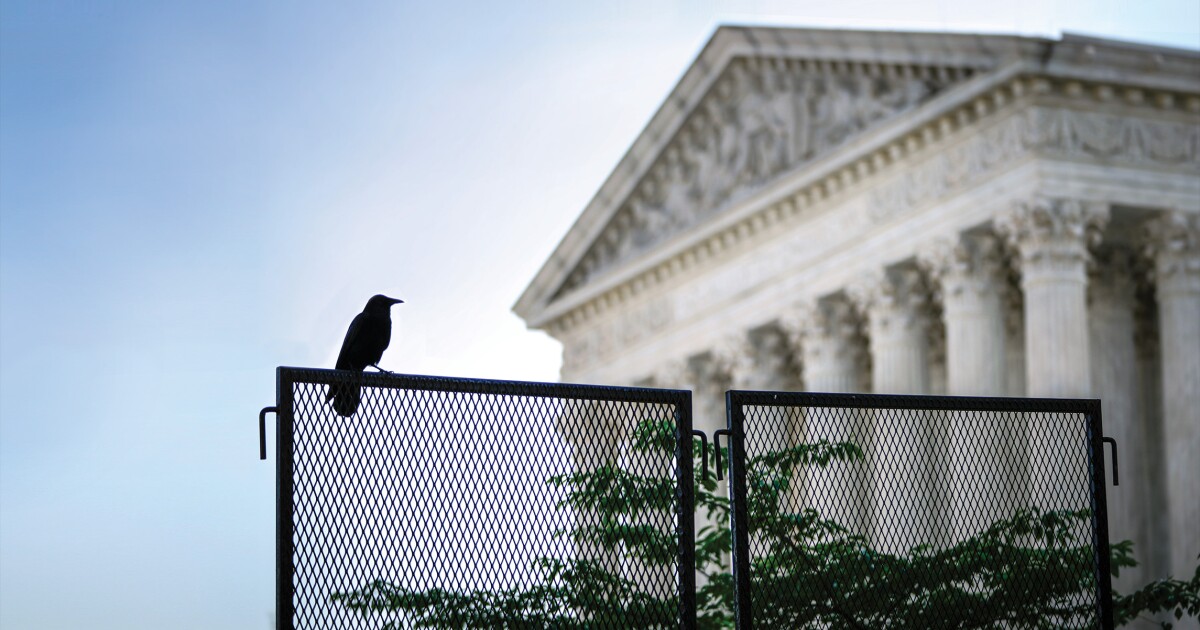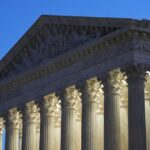

The Supreme Court’s failure to identify the culprit behind last year’s leaked draft opinion signaling the overturning of Roe v. Wade dissatisfied both Republicans and Democrats on the House Judiciary Committee, prompting murmurs of further inquiry.
The high court, in its June 24, 2022, issuance of the Dobbs v. Jackson Women’s Health Organization opinion, upended decades of case law by ruling that there is no constitutional right to an abortion. That effectively made abortion a state issue.
FAILURE TO FIND SUPREME COURT LEAKER TESTS JUSTICES’ ABILITY TO BUILD BACK TRUST
But the 6-3 decision, authored by Justice Samuel Alito, came as a surprise to just about no one, thanks to an unprecedented leak of that decision on May 2 by Politico.
Almost immediately, Chief Justice John Roberts ordered an investigation into the origins of the leak. The inquiry was led by the Supreme Court’s marshal, former Army Col. Gail Curley, who is mostly famous for her auditory contribution of “Oyez! Oyez! Oyez!” when justices walk into the courtroom during oral arguments.
But almost nine months later, on Jan. 19, the high court’s public information office released Curley’s report. It stated the leaker’s identity could not be determined “by a preponderance of the evidence.”
The fallout from the inconclusive report churned discussions on Capitol Hill about what more lawmakers could do to help the Supreme Court’s monthslong investigation, with the report noting: “Investigators continue to review and process some electronic data that has been collected and a few other inquiries remain pending.”
Rep. Jim Jordan (R-OH) vowed last year to investigate the Supreme Court leak ahead of Republicans’ takeover of the House in the 118th Congress. Now as the chairman of the House Judiciary Committee, Jordan told the Washington Examiner on Jan. 26 that he wants to see if there’s anything Congress can do to ensure the marshal of the Supreme Court has everything she needs to complete the investigation.
“We want to know if there’s something we can do to be helpful so they can get to the bottom” of the investigation, Jordan said. That same day, fellow committee member Rep. Chip Roy (R-TX) told the Washington Examiner he would “defer to Jim” on the matter when asked whether he supports a further examination of the leak by the judiciary panel.
With the House under a narrow Republican-majority control, Jordan’s Judiciary Committee agenda has been focused primarily on investigating the Biden administration. Fox News reported on Jan. 19 that Judiciary Committee leaders plan to further probe the Dobbs leak, though the timing and the scope of such plans are unclear.
For many in the legal profession, finding the source of the leak is important to prevent further breaches of trust in the Supreme Court amid a backdrop of widespread protests and threats against the nine justices — the six voting for the Dobbs ruling whole or in part all were appointed by Republican presidents.
The Dobbs leak almost immediately set off partisan recriminations. Conservatives saw it as an effort to pressure justices to change their initial private votes in favor of overturning Roe. Abortion rights supporters, dismayed at reversing nearly 50 years of precedent, have suggested a conservative justice or ally leaked the opinion in the hope of softening the blow in public reaction once it was issued officially.
One day after the Supreme Court released its inconclusive report, Curley on Jan. 20 issued a supplemental statement revealing that all the justices were also interviewed by her as part of the investigation process. But they were not required to sign sworn affidavits, unlike the 97 court employees questioned during the inquiry.
Adam Feldman, the founder of the widely cited Empirical SCOTUS blog, told the Washington Examiner the fact that justices were treated differently as part of the investigation will likely set “a narrative” that the court “did not do enough in this investigation.”
And that investigators “were probably worried about stepping on people’s toes,” Feldman said.
“I think we would hold justices to a standard where we expect them to tell the truth. But to not have them sign affidavits seems like it’s neglecting to treat them as any other person who was being investigated for this,” Feldman said.
Some lawmakers with experience on the judiciary panel told the Washington Examiner they would be in favor of holding future hearings regarding the Dobbs leak. Rep. Ted Lieu (D-CA), a minority party member on the committee, indicated he would “certainly” support any efforts to further probe the leak if that was the Republican leadership’s decision, noting it was “interesting” the justices did not sign affidavits.
“If they want to do that, I’m totally supportive,” Lieu said.
Rep. Jamie Raskin (D-MD) was a Judiciary Committee member in the 117th Congress and said that while his opinion is now “from the outside,” he “absolutely” thinks the panel should probe the matter further.
CLICK HERE TO READ MORE FROM THE WASHINGTON EXAMINER
Raskin, a tenured American University law professor before winning his House seat in Washington, D.C.’s Montgomery County suburbs, also indicated his belief that the source of the leak may have been someone close to the court.
“It’s far more likely that the leak came from someone who is trying to neutralize Justice Roberts than someone who was in vain trying to head off the whole thing,” Raskin said.







